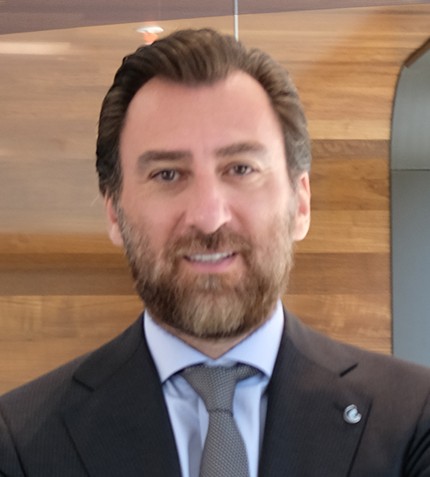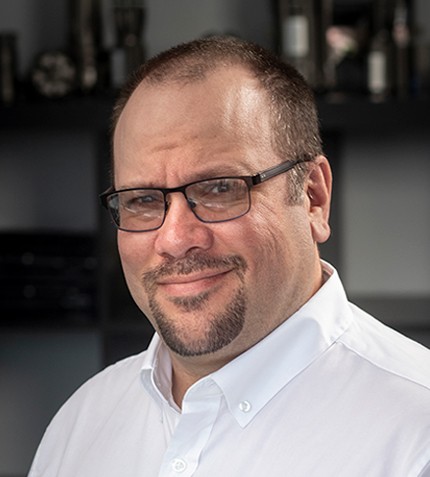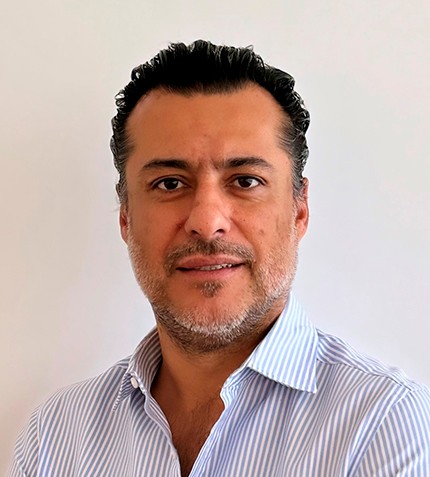
"Currently, we are conducting the technology transfer to Turkey in some molecules and, at a later step, we will produce antigens too in Turkey. In terms of our therapies of focus, we are mainly targeting chronic diseases, as well as rare diseases, hospital injectables and vaccines."
Ersin Erfa
GENERAL MANAGER, CENTURION PHARMA
Several years ago Centurion stated ambitions to grow by 150% by investing in specific areas like injectables, orphan drugs and biosimilars. How has this vision evolved?
Centurion has demonstrated very healthy growth ratios and our product pipeline has diversified significantly. Today, we are investing heavily in R&D, with more than 5% of our revenues allocated to boosting innovation and development. Recently, we have also received GMP certification for our biologics production, and we are planning investment in vaccines. Reflecting today on the undertakings of the past five years, I can only be happy with the evolution of the company.
Centurion has had a very dynamic growth path, shifting focus from marketing to R&D, and then the production of small and large molecules, eventually leading to an investment into the second largest biotechnology plant in Turkey. What trends underpinned the decision to go forward with this recent investment?
The biotechnology market worldwide takes perhaps more than 20% of the total market share of drugs, and we expect these digits to double in coming years. Looking at the Turkish market, we see similar figures, with 17% of all prescriptions falling under the umbrella of biotechnology. Such strong data gave us an impetus to invest in this sector, especially since we were already active in vaccines and plasma products. Currently, we are conducting the technology transfer to Turkey in some molecules and, at a later step, we will produce antigens too in Turkey. In terms of our therapies of focus, we are mainly targeting chronic diseases, as well as rare diseases, hospital injectables and vaccines.
The new biotech facility was the first inspected by TITCK since Turkey joined the PIC (Pharma Inspection Co-operation Agreement) in 2018. How do you believe entering into this agreement will help Turkish exports in coming years?
Turkey entering the PIC is a valuable achievement, but we should not forget that this is not enough; Turkey must achieve bilateral agreements with the different countries that are members of this association. At the moment, this is not the case, and therefore the next steps would be to sign mutual recognition agreements that would unequivocally boost Turkish exports to double-digit growth.
The biotech sector is a very high-risk, capital-intensive market. What prospects do you believe Turkey has in this much-hyped sector?
Looking at countries like Korea, Egypt, India or Argentina, one notices that the biotech sectors achieved success because authorities conferred market protections. In Turkey, there are more than 13 biotechnology companies, but if we look at market shares, not one of them is in a strong position to grab higher proportions. In this case, authorities need to step in to protect industry players. Likewise, local producers should also focus their technology to the molecules or antigens, and not just resign themselves to fill and finish projects.
Can you elaborate on the significance of the collaboration with Neovacs to launch the first drug for Lupus?
Phase two studies have been successfully finalised and announced. Lupus is a very important rare disease, affecting especially women between the ages of 20 to 40. The treatment for the disease is very costly for the social security budgets of different countries. We expect that Phase three studies will be finalized in the next two years and the product will be launched worldwide.
Can you share with us what comes next in terms of priorities laid out by Centurion in the medium term?
The vaccine business is the most crucial component of our business today as we prepare to make localizations for three vaccines, from antigen to fill and finish. In this way, we will attain independency, using live and recombinant technology vaccines. At this point, we have already signed the technology transfer agreements, and we find ourselves at the stage of discussing regulation issues with government.










